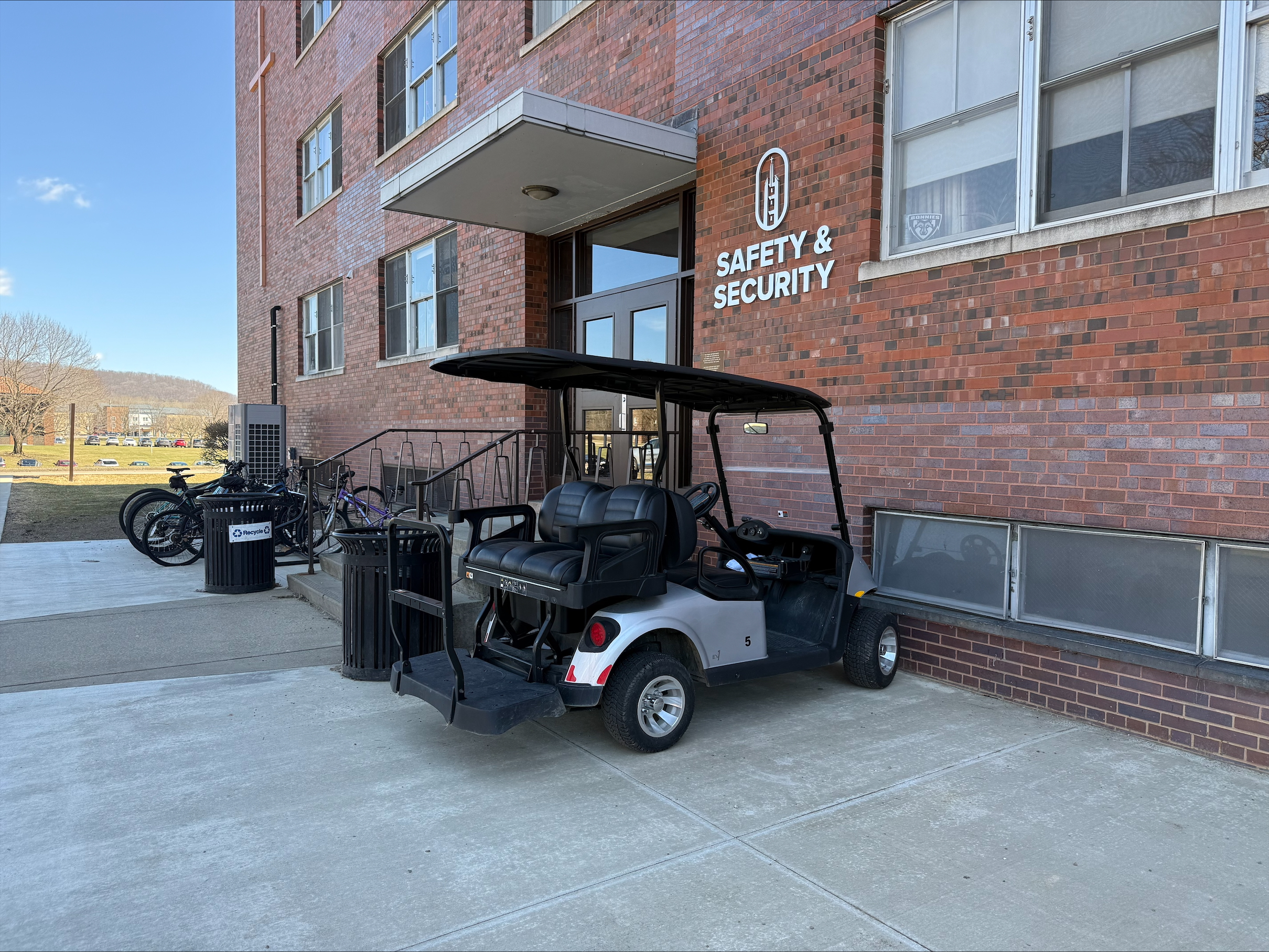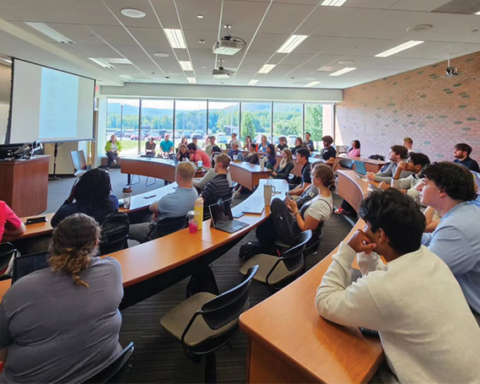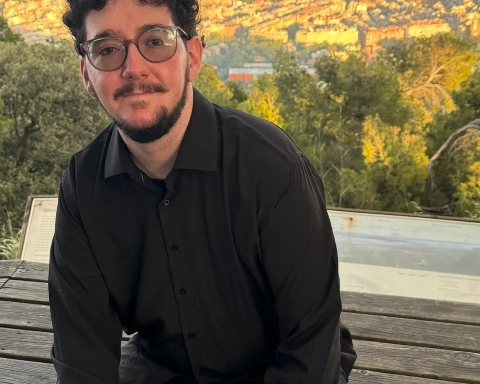Being an undeclared major often poses more long-term benefits than struggles for students, according to Guy Imhoff, interim dean of Clare College.
Imhoff, Ph.D., who was recently renamed the director of the Major Adventure Program (MAP), said the program helps undeclared students explore potential majors. A university Notice Board announced Imhoff’s new position on March 2.
Imhoff’s leadership proceeded that of Lauren Matz, Ph.D., professor of English and the founder of MAP. After Imhoff accepted his position as dean, Barry Gan, Ph.D., professor of philosophy, took over as director for the following two years.
Imhoff said his transition back into serving as director was a fairly easy one, as he already had an understanding of the responsibilities of the position.
“My job is to welcome the students who don’t have a major; we call them undeclared,” Imhoff said.
According to Imhoff, MAP helps undeclared majors in the School of Arts & Sciences find appropriate majors, assigning them academic advisors and working in conjunction with the Career and Professional Readiness Center (CPRC) to offer major exploration programs.
“We also work in close connection with the career center,” Imhoff said. “[Students] can go there for advice…they have some type of aptitude test called Focus which is free (it’s on the website), and we have other tests like the SDS, the Self Directed Search, which is also an aptitude test that they can take at the career center, just to see what their strengths are.”
One of MAP’s main incentives is to encourage students to utilize these explorative resources, as well as to fulfill elective requirements to get a feel for different fields.
“Sometimes they don’t realize they have that strength or sometimes they know it but don’t realize, ‘Hey, it could be a major,”’ he said.
For students aiming to earn a degree in four years, the deadline for committing to a given major is the end of the student’s sophomore year. Imhoff said that most undeclared majors commit to a major after one year in MAP, typically making the commitment requirement feel unrestricting.
Imhoff added that undeclared majors can easily feel isolated, as they are unable to meet others through a specific major community. Because of this, MAP aims to help these students feel welcomed.
Imhoff said that freshmen University 101 classes are a vital force in community building among undeclared majors, too. He added that undeclared majors aren’t unique to underclassmen, though.
According to Imhoff, many transfer students become undeclared majors, as well as current students transitioning out of a given major.
“We have a few students who come here with a major, who within a semester, become undeclared because they realize it’s not the major they wanted, and they don’t know what to do,” he said. “It goes between schools. Sometimes I have business students who become undeclared arts and science majors.”’
Although undeclared students are integrated in their exploration of potential majors, Imhoff said they are also often united by an unfair stereotype, that being an undeclared major is synonymous with one being commitment lacking.
“It’s okay to be undeclared because most college students change their major two or three times anyways,” Imhoff said. “It’s kind of a good way, in fact, to start your university education, to be undeclared for a semester or two.”
Aside from breaking down this stereotype, Imhoff said that MAP aims to alleviate parental anxiety regarding their children’s undeclared status. He added that, in reality, there’s nothing for parents to be worried about.
“The parents are worried sometimes that their students don’t know what to study,” he said. “We also have to advise the parents that it’s okay. Parents are also worried that students are wasting their time and their tuition money but, in fact, they are not. You have to do electives anyways so trying different courses here and there for the first two or three semesters, it’s helpful.”
According to Imhoff, while MAP provides undeclared majors with a variety of resources to help them find their desired professional path, “exploration” falls solely on students.
“They have to explore on their own,” Imhoff said. “We cannot declare a major for them…just by associating with people on campus, going to classes, getting to know professors, a lot of students discover their love for a topic, a field.”
Imhoff added his involvement in MAP has awarded him some valuable experiences and perspectives as well.
“It’s helped me to help people,” Imhoff, a professor of French, said. “My majors, they know what they want to do. It’s a small program; they know which classes to take. Undeclareds are more challenging. You have to meet with them, discuss [and] pinpoint a little bit their strengths. You help them see who they are and, so, it’s a different kind of advising.”
mcgurllt14@bonaventure.edu





